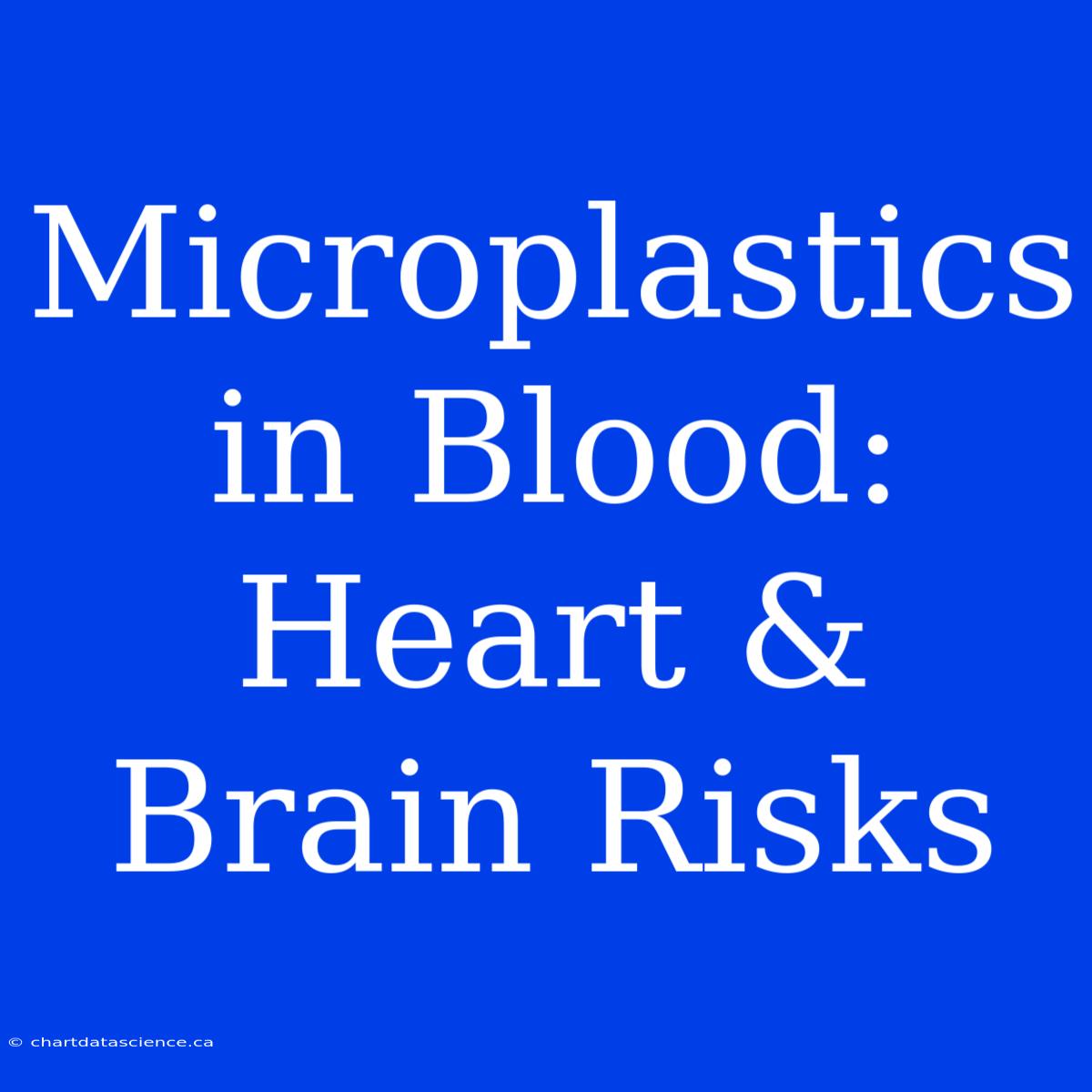Microplastics in Blood: Should We Be Worried About Our Hearts and Brains?
It's official: Microplastics are in our blood. Tiny bits of plastic, smaller than a grain of sand, have been found in human blood, raising concerns about potential health risks, particularly for our hearts and brains. This discovery has sent ripples of anxiety through the scientific community, prompting intense research into the long-term effects of these ubiquitous particles.
Microplastics: A Silent Threat
Microplastics are everywhere – in our food, water, and air. We ingest them unknowingly, and they find their way into our bodies through inhalation and skin absorption. These tiny particles, often overlooked due to their small size, pose a significant threat to our health.
Microplastics and Heart Health
The presence of microplastics in our blood raises concerns about their impact on cardiovascular health. Studies have shown that microplastics can cause inflammation in the blood vessels and disrupt the normal function of the heart. This inflammation can lead to cardiovascular diseases like heart attacks and strokes. Additionally, microplastics have been linked to the development of atherosclerosis, a condition where plaque builds up in the arteries, further increasing the risk of heart disease.
Microplastics and Brain Health
The brain, with its delicate blood-brain barrier, is particularly vulnerable to the effects of microplastics. Research suggests that microplastics can cross this barrier, potentially disrupting the normal function of brain cells. This could contribute to cognitive decline, neurodegenerative diseases like Alzheimer's disease, and even mental health issues.
What Can We Do?
While research is ongoing, it's important to be aware of the potential risks associated with microplastics.
- Reduce Your Plastic Consumption: Opt for reusable alternatives, limit single-use plastics, and choose products with minimal packaging.
- Support Sustainable Practices: Support businesses that prioritize sustainable practices and advocate for policies that reduce plastic pollution.
- Stay Informed: Keep yourself updated on the latest research and advocate for stricter regulations to protect our health and environment.
The presence of microplastics in our blood is a sobering reminder of the invisible threats we face. By taking proactive steps to reduce plastic pollution and prioritize sustainable practices, we can mitigate the risks and protect our health for the future.
This is a new and developing area of research, and we're still learning about the potential risks of microplastics in the body. However, the evidence suggests that it's a serious issue that we need to take seriously.

